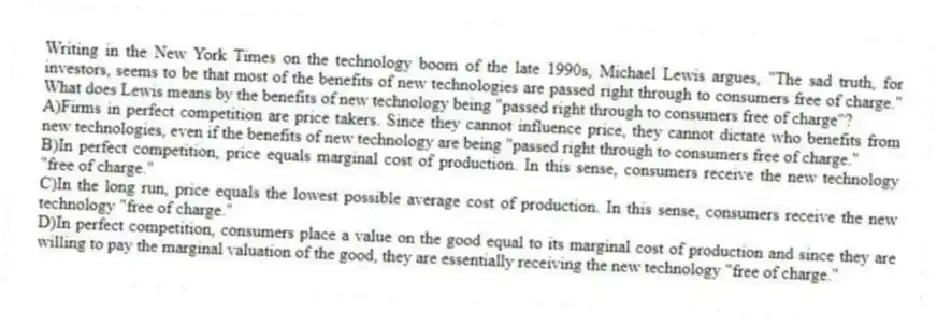
Writing in the New York Times on the technology boom of the late 1990s, Michael Lewis argues, "The sad truth, for investors, seems to be that most of the benefits of new technologies are passed right through to consumers free of charge." What does Lewis means by the benefits of new technology being "passed right through to consumers free of charge"?
A) Firms in perfect competition are price takers. Since they cannot influence price, they cannot dictate who benefits from new technologies, even if the benefits of new technology are being "passed right through to consumers free of charge."
B) In perfect competition, price equals marginal cost of production. In this sense, consumers receive the new technology "free of charge."
C) In the long run, price equals the lowest possible average cost of production. In this sense, consumers receive the new technology "free of charge."
D) In perfect competition, consumers place a value on the good equal to its marginal cost of production and since they are willing to pay the marginal valuation of the good, they are essentially receiving the new technology "free of charge."
Correct Answer:
Verified
Q272: What is meant by the term "long-run
Q273: Assume that the 4K and OLED television
Q274: Which of the following describes a situation
Q275: In early 2007, Pioneer and JVC, two
Q276: Why would a company continue to operate
Q278: Assume that the personal computer industry is
Q279: Which of the following describes a situation
Q280: A perfectly competitive industry achieves allocative efficiency
Q281: Which of the following describes a difference
Q282: If productive efficiency characterizes a market
A)the marginal
Unlock this Answer For Free Now!
View this answer and more for free by performing one of the following actions

Scan the QR code to install the App and get 2 free unlocks

Unlock quizzes for free by uploading documents